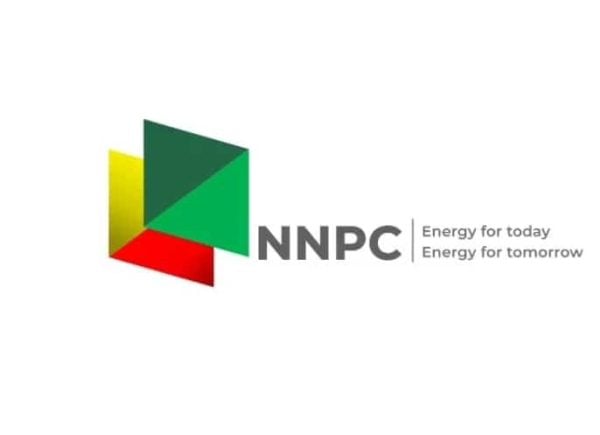The Nigerian National Petroleum Company Limited has received N318.05bn between January and August 2025 for frontier oil exploration, findings by The PUNCH have shown.
This is according to documents from the September 2025 Federation Account Allocation Committee meeting obtained by The PUNCH.
The deductions represent 30 per cent of Production Sharing Contract profits, which are automatically set aside each month for exploration in inland basins.
The Petroleum Industry Act 2021 created the Frontier Exploration Fund, which mandates that 30 per cent of profits from NNPC’s Production Sharing Contracts be channelled into oil search across under-explored basins, including Anambra, Bida, Dahomey, Sokoto, Chad and Benue.
Regulations also require the Nigerian Upstream Petroleum Regulatory Commission to manage the fund through an escrow account and issue an annual Frontier Basin Exploration and Development Plan.
Further findings by The PUNCH showed that the NUPRC in July 2025 unveiled a Frontier Basin Exploration and Development Plan detailing proposed seismic surveys, stress-field detection, data integration, and wildcat drilling across basins in Benin Dahomey, Anambra, Bida, Sokoto, Chad, and Benue.
The plan outlined work such as logging and testing of the Eba-1 well in the Dahomey basin, drilling of a new wildcat in Bida, reappraisal of Wadi wells in Chad, and reassignment of Ebeni-1 drilling in Benue.
Signed by the Chief Executive of the NUPRC, Gbenga Komolafe, the document stated that the outcome of these activities would determine further de-risking of assets and exploratory drilling in line with statutory requirements.
Analysis of the FAAC documents by The PUNCH further showed that PSC profits so far this year amounted to N1.06tn, below the budgeted N1.58tn, creating a shortfall of N518.76bn.
Despite this gap, the statutory 30 per cent deduction for frontier exploration was consistently applied, month after month, producing an accumulated N318.05bn by August.
The monthly trend reveals the volatility of the fund. In January, N31.77bn was deducted into the frontier line, when PSC profits came in at N105.91bn.
The February deduction rose to N38.30bn from a profit of N127.67bn, representing a 20.6 per cent increase on the January inflow.
March provided the first big surge, with N61.49bn allocated to frontier exploration from profits of N204.96bn, a jump of 60.5 per cent on February’s figure.
April, however, saw deductions ease back to N36.58bn as profits slid to N121.93bn, a 40.5 per cent drop compared with March.
In May, the fund received N38.8bn, only slightly higher than April’s contribution, reflecting profit of N129.33bn.
June delivered the lowest allocation so far this year, just N6.83bn, after profits collapsed to N22.77bn. That represented an 82.4 per cent fall from May.
The flow recovered somewhat in July, with N25.34bn transferred into the fund from profits of N84.48bn.
In August, the line shot up again to its highest level so far this year. With PSC profit surging to N263.13bn, the fund received N78.94bn, more than three times the July amount and twelve times June’s contribution.
Across the eight months, the monthly allocations to the frontier fund varied sharply, from as little as N6.83bn in June to as much as N78.94bn in August.
Yet by the end of the period, the automatic deductions had steadily accumulated N318.05bn into NNPCL’s control for exploration in new oil basins.
The same 30 per cent rule also applied to NNPCL’s management fees, which mirrored the frontier deductions exactly.
In January, NNPCL booked N31.77bn; in February, N38.30bn; in March, N61.49bn; in April, N36.58bn; in May, N38.8bn; in June, N6.83bn; in July, N25.34bn; and in August, N78.94bn.
This brought the company’s management fees to N318.05bn in the first eight months of the year.
Based on the figures, the oil firm got a total of N636.1bn for frontier exploration and management fees.
The PUNCH further observed that the Federation Account, entitled to 40 per cent of PSC profits, also experienced the same volatility.
It received N42.364bn in January and N51.067bn in February. March brought N81.985bn, the strongest inflow of the first quarter.
April saw a fall to N48.772bn, followed by N51.730bn in May. June gave the lowest figure of the year at N9.110bn.
In July, receipts rose again to N33.792bn, before climbing steeply to N105.250bn in August, the largest monthly payout so far.
Year-to-date, the Federation Account has received N424.071bn from PSC profits, still well behind the budgeted N631.573bn, leaving a shortfall of N207.502bn.
The FAAC documents confirmed that while PSC profits generated just over N1.06tn this year, the deductions left the Federation Account with significantly less to share among the three tiers of government.
The pressure has been compounded by the non-performance of NNPCL’s interim dividend line.
Budgeted at N271.184bn per month, or N2.169tn year-to-date, the company has not remitted any amount so far, leaving a gaping hole in the federation’s revenue plan.
The issue has prompted closer scrutiny. The FAAC documents record that a special subcommittee was set up to examine the 30 per cent frontier deductions.
The committee met with NNPCL, the Nigerian Upstream Petroleum Regulatory Commission, and the Central Bank of Nigeria.
At the meeting, NNPCL presented details of exploration activities carried out in all the inland basins from 1999 to date and outlined its intended activities for 2025.


























